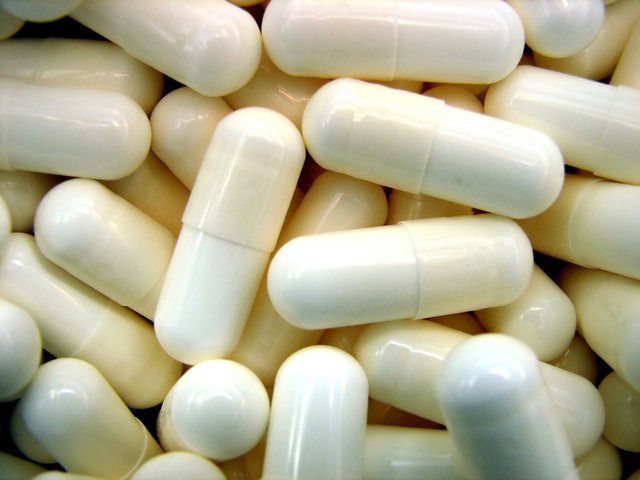What is Inositol?
Inositol is a water-soluble health supplement which falls into the B-complex category of vitamins, being categorized as Vitamin B8. Your body naturally produces it in your brain, heart, liver, kidneys, and spleen and is also widely available in nature but, just like any other synthesized chemical in the body, you can only benefit from supplementing with it to avoid a deficiency.
It is highly effective at treating a variety of mental health disorders, ranging from depression, anxiety, insomnia, OCD (obsessive-compulsive disorder), and PMS (pre-menstrual syndrome), and in some cases, has proven to be even more effective than prescribed medication. It also helps to improve the health of the skin, hair, liver, digestive system, heart, and lungs.
How to know if you’re deficient?
B8 is vital for overall health because it helps to boost electrical current in the brain and to transport nutrients to the cells of vital organs. It is also a form of glucose that helps the liver to process fats and keeps muscles and nerves working properly.
Your body does produce small amounts of inositol, but stress, anxiety, mental disorders, hormonal imbalance, and other factors can cause you to run low on it, which shows up in various ways.
It can cause nausea, eczema, skin rashes, depression, anxiety, polycystic ovarian syndrome, cardiovascular disease, high blood pressure, impotence, and even lung cancer.
Here are 8 Health benefits of Inositol:
1. Improves Cognitive Function
According to the National Alliance on Mental Illness, 1 in 5 adults or 18.5% of the population suffers from a mental health disorder in any given year, and only 41% receive treatment for it.
Inositol helps to facilitate the communication between the billions of cells in your brain, which is important for sustaining proper mental health. Chemicals in the brain known as serotonin, dopamine, norepinephrine, acetylcholine, and GABA rely on inositol to relay messages and without it the neurotransmitters cannot do their job properly. Supplementing with this important vitamin will help neurotransmitters to function better, which will help to increase cognitive function, problem-solving abilities and memory retention.
2. Inhibits Growth of Cancer Cells
Studies have shown that inositol helps to inhibit the development and growth of cancer cells, especially in the lungs. It also helps to soothe the side effects of chemotherapy, such as nausea, lethargy, and hair loss.
3. Regulates Blood Pressure
High blood pressure, known as hypertension, can cause heart disease, heart attacks, and strokes. B8 improves circulation, relaxes stiff arteries, and helps to keep blood pressure in the healthy range.
4. Improves Mood
By boosting the level of serotonin, which is the happy hormone in the brain, inositol helps to lift the symptoms of depression and anxiety. Studies have shown that it is even better for treating depression and mental health disorders than prescribed medication, which is incredible. One study showed that it was just as effective at treating depression as fluvoxamine, a common anti-depressant, without having any negative side effects.
5. Natural Weight Loss
By making the breakdown of fats more efficient and increasing metabolism, Vitamin B8 helps to support natural weight loss. It also helps to transport lipids (healthy fats) to the cells, which increases the level of high-density lipoprotein (HDL) cholesterol, which is excellent for cardiovascular health.
6. Relieves Polycystic Ovarian Syndrome (PCOS)
PCOS is caused by hormonal imbalance and leads to infertility, erratic menstrual cycles, and ovarian cysts, which can be very painful. Supplementing with B8 has proven to help relieve the symptoms of PCOS by naturally balancing hormones while encouraging ovulation and better fluid balance.
7. Soothes Symptoms of OCD
Studies have shown that supplementing with inositol helps to reduce the symptoms of obsessive-compulsive disorder (OCD), which can be a debilitating mental disorder. It also helps to reduce anxiety and prevent panic attacks, leaving patients feeling more calm and in control in general.
8. Promotes Better Sleep
While research is still ongoing about the treatment of insomnia using inositol, evidence has shown that because it helps to boost the level of serotonin in the brain and improves circulation, it could be very effective at promoting better sleep. Sufficient rest is crucial for maintaining good health, which makes it an excellent supplement to take to help calm the mind and set the tone for a great night’s rest.
Dosage and how to take it?
While no official dosage for inositol has been set, research has shown that taking 500-2000 milligrams per day can help to improve mental and physical health within a few weeks.
It’s best to buy the powder because it can easily be stirred into water and can be taken with or without food. It has a slightly sweet taste, which makes it easy to take.
Most capsules in health food stores contain 500 milligrams of inositol, usually labeled or known as myoinositol. For neurological uses, a dosage of up to 18 grams is recommended per day, which means that it would be best to take it in powdered form.
What are the side effects of Inositol?
Because it is a naturally occurring substance, any excess is eliminated from the body without causing any toxicity. It is generally considered safe and there are no known interactions with other supplements and types of medication.
In order to treat mental health disorders, dosage up to 18 grams could cause digestive upset, slight dizziness, and headaches but the positive effect far outweighs these minimal side effects in patients.
It is recommended to speak with your doctor or mental health professional in order to determine the correct dosage for you, however, inositol for general use and improving overall health is perfectly safe.
Which foods naturally contain B8?
There are abundant food sources that contain inositol and increasing their intake in your diet can help to naturally boost Vitamin B8 levels. Some of the richest sources include peanuts, mushrooms, milk, cheese, beef liver, yogurt, almonds, oatmeal, whole wheat bread, fortified cereals, and egg white.
Are there other forms of this supplement?
While many food labels will list inositol as Vitamin B8, there are also other names for it, such as myoinositol. Because of its effectiveness at improving health, it is also combined with other vitamins, such as niacin, and can be bought in the form of inositol hexanicotinate or IP6.
Sources:
http://www.nami.org/Learn-More/Mental-Health-By-the-Numbers
https://www.nimh.nih.gov/health/statistics/index.shtml
https://www.ncbi.nlm.nih.gov/pubmed/9169302
http://symposium.cshlp.org/content/53/927.short
http://ajp.psychiatryonline.org/doi/abs/10.1176/ajp.153.9.1219?journalCode=ajp
http://www.sciencedirect.com/science/article/pii/S009829970600015X






